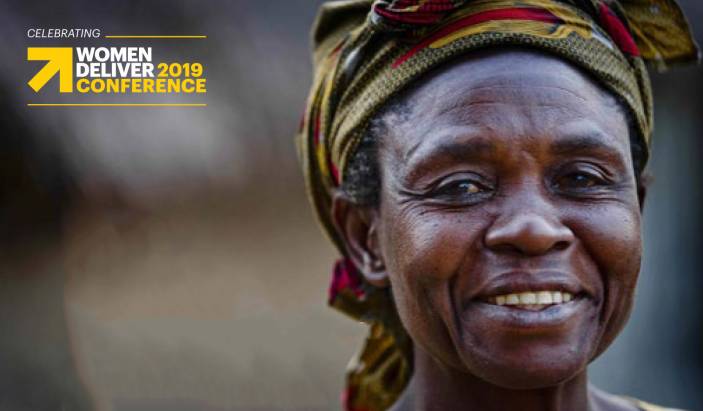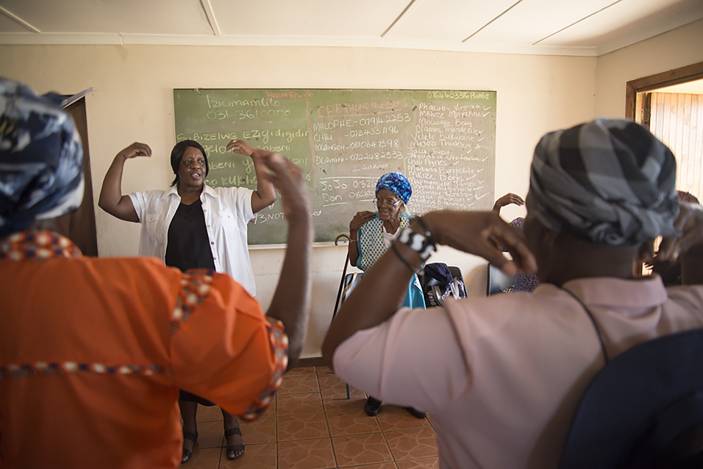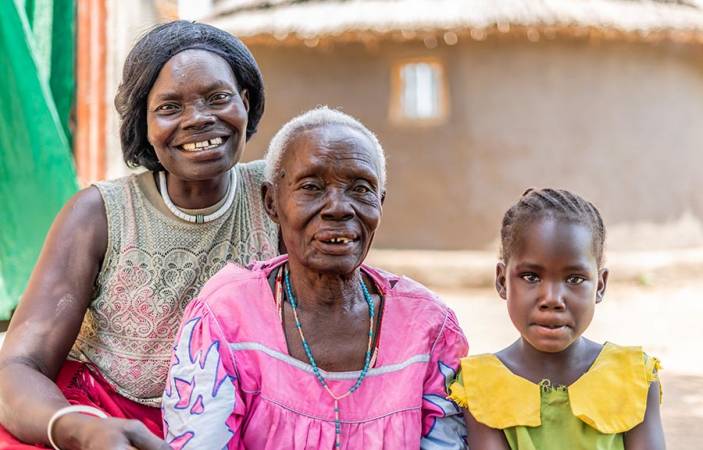In the run up to the 2019 Women Deliver conference our board member Ferdous Begum discusses why older women are left out of gender equality debates.

Older women in lower and middle income countries face great obstacles to gender equality. They are often invisible in society and in policy agendas because of ageist and sexist stereotyping, prejudice and discrimination. Violence and neglect against older women are great obstacles towards equality. Widowhood puts older women even more at risk.
In the workplace, older women do not get equal pay for equal work. Many are overlooked for paid work because they are thought to be of no use to anyone anymore, while their vital contributions in unpaid labour often go unnoticed. In the rural areas of Bangladesh, where I am from, the majority of babies are delivered by trained or untrained childbirth attendants who are often older women. Older women also spend large chunks of their day caring for younger family members and day-to-day household works.
Yet, policymakers forget older women. They concentrate their efforts on the pregnant women, infants and adolescent girls, without noticing the basic needs of older women to live a decent life or the essential contributions older women make to our society. Older women have a wealth of knowledge. In Bangladesh, older women have vast experience in household management, agriculture, midwifery and much more. We need to give them the opportunity to share these experiences and value of their work.
Older women’s sexual and reproductive health needs must be understood
One particular area where older women are invisible is in discussions about sexual and reproductive health and rights. They are ignored in most national health services, including primary health care, because of a perception that older women are no longer useful for reproductive purposes.
But frequent pregnancies and complications like fistulae at a younger age can affect women adversely in their older age. In many cases there is no medical or social support for them. Older women, including disabled older women, often suffer from broken bones and osteoporosis, cataract and other geriatric illnesses related to physical and mental health.
Services and interventions are often geared to women of reproductive age, ignoring women during and after the menopause. Many data systems fail to collect information on women over the age of 49, meaning they don’t get included in the programmes and services they may desperately need. This is wrong as it totally excludes older women and reinforces their invisibility. It also contradicts the Sustainable Development Goals’ agenda of ‘leaving no one behind’. I believe data should be collected on women of all ages.
Older women have the right to be seen and be heard

We need affirmative action to deliver for older women. We need more older women making their voices heard on national and international platforms and at policy making level.
I went to the 2016 Women Deliver conference in Copenhagen, and sadly older women were not properly represented. There was just one event early in the morning. At this year’s Women Deliver conference, things are getting better. HelpAge International is collaborating with the NCD Alliance, FIGO and the WHO to run five sessions that include discussions on older women’s rights. One of our Age Demands Action campaigners, Margaret Kabango , will be there to speak to audiences in her own words about her personal experiences of accessing healthcare in Uganda as an older woman.
We need to recognise older women’s contributions to society and open up leadership roles for older women to create change. They contribute to their families and the economy as caregivers, supporting the children of their migrant sons and daughters, supporting women during child birth and in the agricultural field as well. They are a source of vast knowledge. Why can’t we put older women in the driving seat? We must make sure older women are included, so that gender equality is really for all I believe gender equality for older women can only be achieved through a life-cycle approach, recognizing their dignity and rights.
The Women Deliver 2019 conference runs from 3-6 June in Vancouver, Canada. Check out the hashtag #WD2019 on Twitter and follow @HelpAge for live updates.

